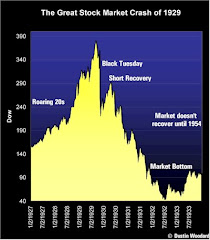
A recent article entitled Gray Menace - Why Japan's aging, shrinking population is bad for the United States was written about the impact of an aging population base in Japan.
The article provides a good overview of the implication of Japans aging society.
Japan is the grayest country in the world, with 21.5 percent of its population 65 or over. Not only is the Japanese population aging, it's also shrinking, from 127 million today to a projected 89 million by 2055
Older workers are less innovative; older, more "mature" markets attract less investment. Older populations live off savings, rather than generating new capital. And, as the number of working-age citizens diminishes, pension funds will be exhausted and tax revenues and government budgets will be squeezed.
Canada is one the verge of suffering the same effects that Japan has suffered as a result of an aging population. However the frightening thing is that it could be much more serious here in Canada than it has been in Japan.
The impact of an aging population been devastating in Japan. In order to look at what has happened check out the the Japanese stock market performance over the past 20 years. Nikkei Index stock chart. The 20 year rate of return on the Japanese market is a negative 75%. The 10 year rate of return is a negative 50%. In 1990 the index was at 38,916 and in 2000 it was at 20,337 and recently touched a low of 7568.
It is important to compare Canadas aging population relative to that of Japan. Japan 10 years ago had a population pyramid that looked like this:

Ten years later Canada has a population pyramid that looks like this:

Courtesy Nationmasters.comIn the year 2000 the largest age group in Japan was those aged 50 to 54 and in Canada 10 years later the largest age group is those aged 45 to 49. It is quite likely that what happened to the Japanese economy over the past 10 years will repeat itself in Canada.
Look at the band of those aged 25 to 29 in Japan. Canada does not have this band and cannot benefit from the buffer it provided for Japan.
Harry S Dent - The Great Depression Ahead
I was first alerted to the trend of Japan in a book written by Harry S Dent called The Great Depression Ahead. Dent has been a hero of mine since I first came across one of his books several years ago called The Roaring 2000s. One of my brothers made a very successful real estate investment based on the understanding Dent has into real estate markets and how they relate to demographic trends.
The Roaring 2000s accurately predicted the huge run up in stock values that we have seen on North American markets during the past decade. He based this on demographics and the baby boom generation we have heard so much about. There are several concepts in the book that still make The Roaring 2000's worth reading today.
Both of Dents books are filled with charts and graphs that describe the baby boomer spending habits and social trends. The most important fact though is that North American peak spending occurs at around age 48. After that spending decreases at a fairly dramatic rate. Look again at the population pyramid. Where are we now?
Where do we go from here?
Over the past 20 years Canadian have started to invest for their retirement. Much of this money went into mutual funds in the private sector and of course gold-plated pensions in the public sector. In 1987 there were about $40Billion in mutual fund holdings in Canada. That grew until where we have been for the past several years, around $400Billion.
During the time these holdings were increasing the financial services industry was selling based on the Baby Boomers trend. We had such classic books as Boom, Bust and Echo and the Pig and the Python. Everyone was talking Baby Boomer.
The growth in the North American economy over the past was fueled by Baby Boomers. First as they moved into homes and then as they bought mutual funds for their retirement. Both these bubbles ended last year.
Shallow men believe in luck. Strong men believe in cause and effect. - Emerson
Spending the last 20 years in financial services I have paid attention to the experts. These experts predict the trends the future of our economy. I always listened to that class of experts who made money from selling mutual funds and other investments.
Last year I was lucky when I started to take heed of a class of financial commentators who do not receive much press. These are commentators who go against the "common wisdom". They work as advisors to those who have already accumulated their fortunes and want to preserve them.
Last year they were telling a story much different than those who make money selling investments.
Tales from the other side
Many of these commentators are telling the story that we may be in for a long period of very slow economic growth. That the most important thing during this period will be the preservation on capital.
Here is a video by one of those commentators. You may not enjoy what he has to say but I hope you will take some heed in his perspective.
Of course we all hope he is terribly wrong. But remember the Return of your Capital is more Important than the Return on your Capital.
Bill Bonner: Son Of Stimulus



No comments:
Post a Comment